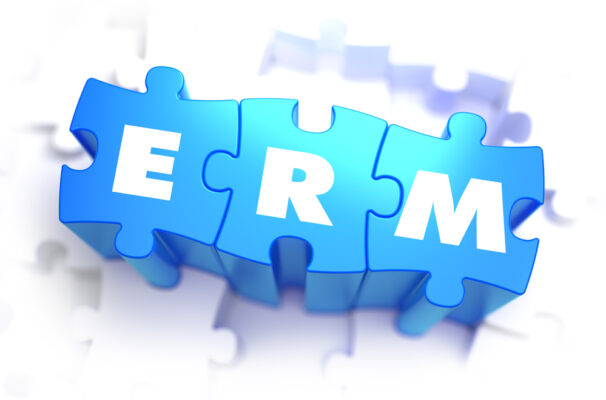Business compliance refers to all applicable laws, regulations, and company policies. For many businesses, compliance is a key part of their operations. Failure to comply with applicable laws and regulations can result in heavy fines, legal action, and reputational damage.
Moreover, an organization needs a successful corporate compliance program to mitigate compliance risk. A chief compliance officer will oversee such a program. Compliance with internal policies and procedures will improve compliance efforts. That’s why a compliance department is essential.
In addition, complying with company policies helps to ensure that employees are treated fairly and consistently and that the company is operating ethically. Compliance is, therefore, an important consideration for any business. A compliance management software will address compliance requirements, i.e. health insurance portability.
Besides, corporate compliance applies to almost every industry regardless of size. Compliance is the application of rules to policies, standards, specifications or laws. Sometimes compliance is voluntary, but most of the time, it’s mandatory, especially regarding external regulations and industry standards.
Normally, organizations obtain certification in SOC and ISO to improve operational efficiency and increase competitive advantages. A second requirement applies to the same situation.
Businesses must comply with regulatory requirements like the Minimum Wage Law and other regulatory regulations. Of course, internal business requirements improve the accountability act and compliance processes.
If you consider getting into a business, you probably encountered “compliance” multiple times. It’s one of the most important areas that businesses shouldn’t overlook, regardless of size. Many business owners do not understand the value and benefits of such technology.
By the way, The terms “compliance” and ” standardization ” can be used in the context of businesses. To truly understand this concept, you must know their differences.
Compliance is the process of adhering to laws and regulations set by governing bodies. This includes ensuring your company’s policies and practices align with these requirements. Non-compliance can lead to costly fines, penalties, and damage to your reputation.
That’s why it’s essential to understand compliance and ensure your business is always compliant. This blog post will provide an overview of compliance and discuss some key areas you need to be aware of. Stay tuned for more information on this critical topic!
What is Compliance in Business?
In business, compliance refers to the process of ensuring that companies and employees adhere to applicable laws and regulations. This can encompass a wide range of activities, from ensuring that financial reports are accurate to ensure that products meet safety standards.
A company’s legal department often oversees compliance, but it can also fall under the purview of HR or other departments. In recent years, compliance has become increasingly important as more companies are held accountable for their actions.
As a result, many organizations have invested in compliance training and developed policies to ensure that employees are aware of their responsibilities. At its core, compliance is about creating a culture of adherence to rules and regulations.
Compliance refers to compliance with an established standard. Software, for instance, is developed under a standards agreement created by the standards organization and then released by users under a license agreement from the vendor. Compliance can be defined as a process by which the organization must comply with regulatory requirements and state legislation for compliance to occur.
Compliance is important in business because it helps to protect the company from legal liability and financial penalties. In addition, it helps to ensure that the company’s products and services are safe and reliable. Two types of compliance exist internal compliance and external compliance.
Furthermore, compliance can help to build trust with customers and other stakeholders. Ultimately, compliance is essential for businesses of all sizes.
Compliance requires solid corporate governance that governs the rules and regulations of companies and the business practices of senior executives in their respective departments. Corporate governance is the way businesses make decisions. Organisations should determine if the law or regulatory environment applies to them and how it applies to the stakeholders.
Importance of compliance
As the firm expands, the hiring, firing, and termination requirements are critical to ensuring compliance with the law in determining compensation and benefits. In the end, compliance is an effective way to ensure the sanity of business standards and helps promote an excellent work environment and an excellent culture.
Company compliance is important for several reasons. First, it helps ensure that the company follows all applicable laws and regulations. This helps to protect the company from legal liability if something goes wrong. Second, compliance helps to ensure that the company is operating ethically and responsibly.
This helps to protect the company’s reputation and build trust with customers and other stakeholders. Finally, compliance helps to ensure that the company is efficiently and effectively managing its resources.
This helps to improve the bottom line by reducing waste and improving operational efficiency. As a result, compliance is essential for any company that wants to be successful in today’s business environment.

Regulatory compliance examples
Depending on the industry, there are various regulatory compliance examples businesses must adhere to. These can include safety regulations, environmental regulations, and financial reporting requirements. Failure to comply with these regulations can result in heavy fines; in some cases, businesses may even be shut down.
For this reason, it is essential that businesses have a clear understanding of the compliance requirements that apply to them. Some common regulatory compliance examples include the Occupational Safety and Health Act (OSHA), the Sarbanes-Oxley Act (SOX), and the Gramm-Leach-Bliley Act (GLBA). IT compliance guidelines differ from country to country, the Sarbanes-Oxley Act and the SEC.
Similar legislations are available in some countries, such as Australia’s Corporate Law Economic Reform Programme Act 2004. Therefore, multinational organisations are required to be aware of regulations in each of their countries of operation. Moreover, GDPR applies when an organisation operates outside the EU and works outside EU boundaries.
What is PCI-DSS?
Companies storing payment cards or card data must conform to PCI-DSS payment card industry security standards. The PCI requirements apply to businesses no matter how often a credit card transaction is handled.
The PCI SSC enforces the PCI compliance standards. The standard provides requirements for the protection of cardholder credit card information. It requires merchants to safeguard their credit cards to prevent unauthorized access to information and protect personal data about their customers.
HIPAA applies to two types of organizations
Covers the parties. It is the organization that collects and sends electronic information. Healthcare organizations considered covered entities could include hospitals and healthcare clearing houses. A business associate is any organisation contracted for the services provided by the covered entity, such as billing agencies or legal firms.

Regulatory compliance vs. corporate compliance
Corporate compliance is a term that is often used interchangeably with regulatory compliance. However, there is an important distinction between the two. Regulatory compliance refers to following the laws and regulations that government agencies impose.
Corporate compliance, on the other hand, encompasses all the legal and ethical obligations a company has to its shareholders, employees, customers, and other stakeholders. In other words, corporate compliance goes beyond simply obeying the law.
It also requires businesses to adhere to internal policies and procedures, as well as to ethical standards. As such, corporate compliance is a much broader concept than regulatory compliance. Nevertheless, both are essential for ensuring that businesses operate lawfully, responsibly, and are business compliant.
It is possible to differentiate compliance between corporate and regulatory types. Compliance with regulations and laws for corporations and businesses combines a set of rules, regulations and procedures which must be followed. Corporate compliance is similar, but its principal difference is whether the policy originates from the regulatory environment.
What is HIPAA?
HIPAA (the HIPAA) legislation aims to ensure the safe disclosure of protected health information (PHI). A HIPAA compliance policy will ensure that healthcare organizations safeguard patients’ confidential data.
Compliance as a standard
Compliance becomes standard when a firm is equipped with standardized rules and procedures for maintaining security and stability at the workplace. Compliance standards will only have relevance when properly followed within the organisation.
To think of the standard doesn’t simply mean following arbitrary rules or regulations. It must be understood that following this policy is appropriate even for a small business owner. Having the right compliance matter programs is essential for an organisation.
To avoid legal liabilities
A business should not be involved in legal trouble and face prosecution for violating laws. The legal liability may have an immediate financial and reputational impact. A court appearance may have serious consequences for business operations.
To comply with the country’s laws, you must learn the relevant compliance policies and regulations and apply them at every expense. In general, the key factor to promoting businesses is building an impressive reputation in the marketplace. In case of non-compliance, a company’s credibility could be compromised. Compliance risk assessments for certain industries
Compliance as an action
Compliance in business is typically defined as compliance with laws and safety requirements. This action can be made only if conscious acknowledgment is made of such rules or policies. Compliance is considered vital to the business, and the operation is required.
What is the significance of that? Compliance regulations comply largely with statutory requirements from recognized authorities. To comply means meeting specific standards so your business runs legally and securely. It also discusses various roles within a business.
Conclusion
Compliance is a term used in business to describe the actions and behaviours of employees that ensure they are following company policies and state or federal laws. For a business to be successful, it’s important for all employees to comply with company standards.
Compliance is key to reducing risk and maintaining a positive reputation within the community. While compliance may seem like an overwhelming task, there are several steps businesses can take to make sure their employees adhere to compliance regulations.
Maintaining compliance can be challenging, but it’s important for the success of your business. By implementing systems that make it easy for employees to comply with regulations, you can reduce your risk of penalties and maintain a good reputation in the community. Have you had any issues with compliance in your business?

Chris Ekai is a Risk Management expert with over 10 years of experience in the field. He has a Master’s(MSc) degree in Risk Management from University of Portsmouth and is a CPA and Finance professional. He currently works as a Content Manager at Risk Publishing, writing about Enterprise Risk Management, Business Continuity Management and Project Management.

